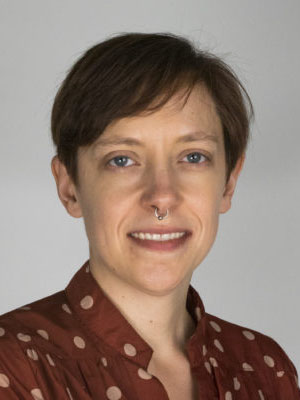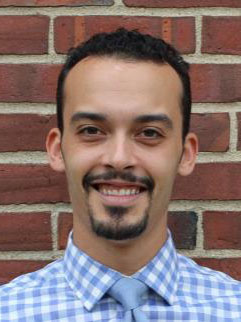
Summer jobs are a rite of passage for young people—but like many traditions, those opportunities have been upended this year by the COVID-19 pandemic. Cities across the country scaled back or even canceled their summer jobs programs, which provide critical income and work experience. Boston, however, has transformed it thanks to efforts of several Heller alumni, including Lynn Sanders, MPP’10, deputy director of workforce development for the city of Boston Mayor’s Office of Workforce Development (OWD), and Cameron Mendes-Moreau, MPP’18, opportunity youth coordinator for the Boston Private Industry Council (PIC). They spoke to Heller about the importance and challenges of keeping the program going during the era of COVID-19, and the pandemic’s long-term effects on workforce development efforts.
It wasn’t a given that there would be a summer jobs program in Boston this year. How did you and your colleagues make it work?
Sanders: Nationally, it was clear that summer jobs programs were in trouble. New York City announced that they weren’t doing theirs, but Mayor Walsh said, “We can’t let that happen,” so we made a commitment with all of our partners.
Our program serves 15-24 year old Boston residents, particularly youth from lower-income families. Studies show that there are both positive academic effects and reductions in crime associated with summer jobs. They really help youth get ahead in terms of career development, especially those who don’t have the social capital and networks to do so through their families.
I was pulled in to be the workforce development point person and help figure out the programming. I tend to serve a special projects function for when the director has a new initiative, in addition to my policy research and advisory role for data collection and program evaluation.
Midori Morikawa, MA SID’07, director of business strategy in the economic development office, has been involved in summer jobs programming for multiple years. She coordinates across the city of Boston, PIC, and the other major intermediaries who employ the youth.
One immediate challenge was that the state decided it would only fund remote jobs, so we knew some changes were necessary. We tried to figure out what these virtual engagements would be, and one thing people wanted to do was connect youth to post-secondary education and pay them for taking college courses. Midori started the first steps, then I took the lead.
That seems like a great opportunity. How did you design the program?
Sanders: We have a partnership with four local colleges: Benjamin Franklin Institute of Technology, the Urban College of Boston, and Roxbury and Bunker Hill community colleges. They’re all part of the city’s tuition-free community college program. We put together a menu of 30 course sections in the social sciences, business, communications, and technology, providing solid skills on different career tracks. Popular courses were the general psychology and sociology, as well as web design, IT certifications, automotive and HVAC technology.
Part of the summer job requirement is a commitment of 25 hours per week, so that includes time in class, homework, weekly webinars on job readiness activities, as well as weekly virtual study groups. Each course also has a career coach who works with the youth. It was a challenge initially to get the youth enrolled, and making sure they took the college course just as seriously as a job. In the end, we had 1,100 applications and 500 students enroll in the program. We’ve gotten a lot of feedback from parents who are very excited about it. One of the professors, who teaches the web design class, said he was so impressed with how committed the students are. They’ve put in extra time, and it shows that if they are really motivated and presented an opportunity, they’ll take it seriously. The city’s department of youth employment and engagement is really interested in seeing something like this replicated next year.

What’s the role of PIC in the summer jobs program?
Mendes-Moreau: PIC is the other half of Boston’s Workforce Development Board with the city’s Office of Workforce Development, and we help oversee the distribution of public workforce development funds.
We take a large part in the summer jobs programming, which typically serves over 3,000 students per year. This year we did significantly less than that, but still a lot better than we expected in April. We place with private sector and nonprofit employers.
In previous years, I’ve only been peripherally involved in the summer jobs work, but this year, it was an all-hands-on-deck type of deal. We actually held an internship internally at PIC, with 15 interns on our own payroll. They are partaking in an Aspen Institute project to reduce the number of students, particularly young men of color, who get disconnected from high school or community college.
Looking beyond summer jobs, how do you think the COVID-19 pandemic affect will affect your work in workforce development?
Mendes-Moreau: The irony of workforce development—and this is not unusual in the not-for-profit sector—is that when the work is most important, the funding decreases. The recession will drive up the unemployment rate, but also drive down the philanthropy dollars available.
Sanders: And it will make it harder to make the job placements that those dollars are predicated on.
Mendes-Moreau: Right. This illuminates the challenge with taking social services and moving them out of the public sector. The not-for-profit sector is not so resilient to the vicissitudes of the economy. Our work is going to be incredibly important. We were working hard with a 3.5% unemployment rate. I struggle to know what we’ll do in a much higher unemployment environment.
Sanders: Another dimension is that a big funding source for our office is the Neighborhood Jobs Trust, funded by linkage fees from commercial development. Boston has been building and building and building, but that’s incredibly uncertain now.
There’s a lot of research happening right now on how the employment landscape is going to change, how remote practices are going to continue to play out, what the in-demand jobs will be. The question becomes: How do we ensure we’re preparing people for those roles?
What do you bring from Heller into your work today, and what is it like working with so many fellow Heller alumni?
Mendes-Moreau: I use a lot of skills from both programs frequently. In this sector, you’ll sometimes feel like you’re going helter-skelter, trying to stitch together a funding regime for all your people and programs. But with my degrees, I’m continuing to try to build process orientation, using my MBA skills around stakeholder management, collective impact, and bringing greater coordination between disconnected systems.
Sanders: I turn to my policy implementation course a lot: navigating relationships with partners, communications, and understanding how all the different federal, state and city funding requirements and how those pools of money can be used. My MPP also helps me think about the big picture. I use an assets-based framework in everything I do, focusing on providing resources to folks who need them the most to create holistic opportunities for empowerment, rather than focusing on deficits.
Working with Heller alumni is awesome. Someone who went to Heller has that social justice focus and is dedicated in a different way. Another Heller alum who recently joined our team is Sarah Soroui, PhD’19, workforce and policy manager for OWD. As a PhD alum, she’s more grounded in the research perspective. Working with her, we think about the larger workforce development framework, and her existing research on remote work is really serendipitous as we think about best practices. This summer, Sarah developed and implemented a training for OWD’s career coaches on best practices in remote mentoring, curated career development curriculum for webinars for youth, and is helping to evaluate the success of the program, leading focus groups to collect qualitative feedback from youth participants.
